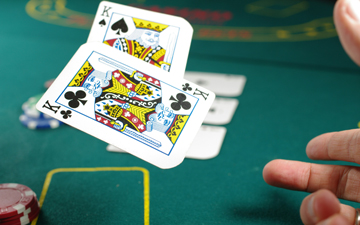Are poker winnings now taxable In Canada? A Canadian tax lawyer's analysis of four Tax Court Of Canada recent poker decisions

When a taxpayer relies on other means to sustain their lifestyle, poker-playing activities fail to comprise a source of income, explains David J Rotfleisch
Introduction: Recent Tax Court Decisions on Taxability of Poker Winnings
 |
David J Rotfleisch, CPA, JD is the founding tax lawyer of Taxpage.com and Rotfleisch & Samulovitch P.C., a Toronto-based boutique tax law corporate law firm. |
Poker, a game of skill and strategy, has gained immense popularity worldwide. In Canada, many individuals enjoy playing poker as a recreational activity or even professionally. Unsurprisingly, the Tax Court of Canada has frequently decided upon the question of whether a particular taxpayer's poker winnings were taxable in Canada.
Generally, poker winnings are not taxable in Canada. This is because the Tax Court of Canada, the Canadian Federal Court of Appeal, the Supreme Court of Canada, and the Canada Revenue Agency (CRA) don't typically consider casual gambling as a source of income.
There are exceptions, however.
The Tax Court of Canada recently decided four cases involving poker winnings:
- Duhamel v The Queen, 2022 TCC 66
- Fournier Giguère v. The King, 2022 TCC 132
- Bérubé v. The King, 2023 TCC 12
- D'Auteuil v. The King, 2023 TCC 3
In Duhamel, the court held that the taxpayer's poker winnings were not taxable. Yet in Fournier Giguère, Bérubé, and D'Auteui — each of which featured facts seemingly indistinguishable from those in Duhamel — the court concluded otherwise, finding that the taxpayers' winnings were indeed taxable. At first glance, these decisions appear contradictory, leaving Canadian taxpayers uncertain about the tax implications of poker winnings.
Sources of taxable income in Canada: Section 3 of Canada's Income Tax Act
Subsection 2(1) of Canada's Income Tax Act requires every Canadian tax resident to pay tax on "taxable income."
Subsection 2(2) then explains that a taxpayer's "taxable income" equals that taxpayer's "income for the year" minus the deductions in Division C of the Income Tax Act. (Division C includes a number of tax subsidies, tax-relief provisions, and policy-based deductions, such as the loss-carryover rules, the lifetime-capital-gains exemption or LCGE, the part-year-resident rule, which renders offshore income non-taxable if earned while a taxpayer was a non-resident of Canada, and tax-treaty exemptions.)
Section 3 describes how to compute a taxpayer's "income for the year." In doing so, the section (non-exhaustively) lists the following "sources" of income: office, employment, business, property, and capital gains.
Hence, these sources of income ultimately make up a person's taxable income. The corollary is that Canadian courts have invoked the "source" concept to exclude certain receipts from a taxpayer's income.
The notion of "income from a source" has proven influential to how Parliament drafted — and how courts interpret — the Income Tax Act. The basic idea is that a receipt constitutes income only if it comes from a productive source. Section 3 of the Income Tax Act codifies this idea by stating that only "income from a source" is included when calculating a taxpayer's income for the year. In Stewart v Canada (2002 SCC 46), the Supreme Court of Canada explained that "whether a taxpayer has a source of income is determined by considering whether the taxpayer intends to carry on the activity for profit, and whether there is evidence to support that intention."
Thus, an income source typically features one or more of the following characteristics:
- It produces a yield that recurs on a periodic basis;
- It requires organized effort, activity, or pursuit on the taxpayer's part;
- It involves a marketplace exchange;
- It gives the taxpayer an enforceable claim to receive payment; and
- It stems from the taxpayer's pursuit of profit (in the case of a source of business income or property income).
As a result, the tax-law concept of "income" excludes windfalls, such as amateur-gambling winnings. Amateur or casual gambling doesn't produce a source of income. Even for compulsive gamblers who continually try their luck at a game of chance — the lottery, for instance — the activity remains a personal endeavour, not a source of income (e.g., see: Leblanc v The Queen, 2006 TCC 680).
This isn't always true, however. Gambling winnings qualify as taxable business income in two types of cases. The first is when the gambling is an adjunct or incident of a business — e.g., a casino owner who gambles in his own casino or a horse owner who trains horses, races them, and bets on the races. The second case is when a person uses his or her own expertise to earn a livelihood from a gambling game in which skill is a significant component — e.g., a pool player who, in cold sobriety, challenges inebriated pool players to a game of pool for money.
Poker as a "source of income" under Section 3 of Canada's Income Tax Act
As discussed above, a receipt is non-taxable unless it stems from a source of income. An activity fails to comprise a source of income if (1) the activity contains elements suggesting that "it could be considered a hobby or other personal pursuit," and (2) the taxpayer did not intend to make a profit when carrying on the activity: Stewart v Canada, 2002 SCC 46, at paras 52 and 54.
The personal-element test precedes the intent-to-profit test. In other words, one examines the taxpayer's commercial intent only if the impugned activity exhibits some personal or hobby element. A clearly commercial activity fails to even invoke the intent-to-profit test. For example, in Stewart v Canada, a taxpayer owned four condominium units from which he earned rental income. The units were all rented to arm's-length parties, and the taxpayer never personally resided in any of the units.
The Supreme Court of Canada held that the taxpayer's rental operation constituted a source of income because it lacked any element of personal use and was clearly a commercial activity. In doing so, the Court explained that the enquiry need not progress to the intent-to-profit test because the rental activity exhibited no personal element. By contrast, Mendoza v Canada also involved an alleged rental property, but the court proceeded to the intent-to-profit test because the taxpayers rented the property to their son.
To satisfy the personal-element test, the impugned activity must display a "personal element [that] so overshadows any element of commerciality as to substantially displace it that one may conclude that the activity is merely a hobby and is not a business at all." If the impugned activity sufficiently resembles a hobby or personal pursuit, the source-of-income analysis then asks whether the taxpayer intended to profit from that activity.
To discern whether a taxpayer intended to profit from the activity, a court looks at various objective factors, including the profit and loss experience in past years, the taxpayer's training, the taxpayer's intended course of action, and the capability of the venture to show a profit. By reviewing these factors, the court seeks to make an overall assessment as to whether the taxpayer pursued the activity with commercial intent — that is, "in accordance with objective standards of businesslike behaviour."
In Brooks v The Queen, for example, the taxpayer's venture of selling various collectible items on eBay constituted a personal endeavour, not a source of income, because the taxpayer never sold a single item. Likewise, in Lang v The Queen, the taxpayer, a retired Canadian Army paratrooper who served in the Korean War, collected and sold military artifacts. The court concluded that the taxpayer engaged in a mere hobby because the taxpayer sold only the duplicate or surplus artifacts that he no longer wanted in his collection.
In Mendoza v Canada, the court found that the taxpayers' rental property failed to constitute a source of income because the taxpayers rented the property to their son for rent that fell well below market. In Palangio v The Queen, the taxpayer alleged that his writings for a local newspaper constituted a source of business income, but the court disagreed, concluding that the taxpayer wrote the articles solely as a personal endeavour. Specifically, the taxpayer wrote the articles as part of his political activities — namely, as a means of promoting transparent governance while he served as a town councillor. The taxpayer also failed to establish that the newspaper had paid him to write the articles.
Several cases have applied the source-of-income analysis to gambling. The gambling cases fall into three broad categories:
- Cases involving gamblers for whom gambling is solely a pleasurable pursuit and for whom the winnings are not taxable — even if they gamble regularly, even compulsively, and with some sort of organization or system.
- Cases in which the gambling winnings were taxable because the gambling activity was an adjunct or incident of an established business — e.g., a casino owner who gambles in his own casino.
- Cases in which the gambling winnings were taxable because the gambler had used his expertise to earn a livelihood from a skill-based game — e.g., a pool shark who makes a living by challenging inebriated players.
The reasoning in these cases, whether explicitly or implicitly, applied the principles underlying the source-of-income test. The respective courts conceded that gambling featured a personal element, and they found the winnings to be taxable only if the gambler pursued the activity with commercial intent — for instance, by piggybacking off of an already established, related commercial enterprise or by leveraging the gambler's skill in a systematic manner, thereby allowing the gambler to earn a livelihood from that activity.
Reconciling the Tax Court of Canada's recent poker decisions in Duhamel, Fournier Giguère, Bérubé & D'Auteui
A number of cases have applied the source-of-income analysis to poker specifically. And, in 2022 and 2023, the Tax Court of Canada decided four cases involving poker winnings. In Duhamel, the Tax Court concluded that the taxpayer's poker winnings were not taxable, but in Fournier Giguère, Bérubé, and D'Auteui, the court reached the opposite conclusion, finding that the taxpayers' winnings were indeed taxable.
Notably, these cases cannot readily be distinguished on the basis of any of the following:
- The taxpayer's quantum of winnings: In Bérubé, the taxpayer won $1.5 million over three years; in Fournier Giguère, the taxpayer won $1.7 million over four years; in D'Auteui, the taxpayer won $5.2 million over five years; and in Duhamel, the taxpayer won $6.3 million over three years.
- The taxpayer's formal training: In Fournier Giguère, the taxpayer was self-taught and received no formal training. In D'Auteuil, the taxpayer learned poker as a child from his father. In Bérubé, the taxpayer was self-taught and received no formal training. In Duhamel, the taxpayer was self-taught and received no formal training. Not one of these taxpayers received any training that gave him an advantage over opponents.
- The taxpayer's use of risk-management strategies: In Bérubé, the taxpayer used no coherent risk-management strategy.
- The taxpayer's record-keeping practices: None of the taxpayers in any of these cases maintained formal accounting records:
- The taxpayer's use of poker-training software: All four taxpayers used poker-training software to some extent.
- The taxpayer's time spent playing, practicing, and learning about poker: All four taxpayers devoted roughly the same amount of time playing, practicing, and learning about poker.
One factor, however, does seem to differentiate the cases finding that poker winnings are taxable from those finding they are not: The taxpayer's ability to make a living exclusively at the poker table. Fournier Giguère, Bérubé, and D'Auteuil each involved a taxpayer who relied on his poker winnings to sustain himself and his lifestyle, and in each case, the Tax Court of Canada held that the taxpayer's poker-playing activities constituted a source of business income.
In Fournier, the taxpayer's poker winnings allowed him to purchase two homes, buy a car, and pay for several trips. Although he also coached poker part-time, that part-time income could not support his lifestyle, nor did it suffice to pay for the assets that he had acquired. Similarly, in D'Auteuil, the taxpayer lived off his poker winnings, generating over $5.2 million over five years. During two of those years, he also earned some part-time employment income, receiving $16,000 in one year and $8,000 in another.
But his poker winnings, not his employment income, covered the $525,000 purchase price for his home and allowed him to buy a $37,000 vehicle in cash. In Bérubé, the taxpayer supported himself entirely on his poker winnings, earning in three years about $1.5 million, which allowed him to buy a $530,000 home outright and to fill his bank account with enough cash to sustain his daily needs.
By contrast, when a taxpayer relies on other means to sustain his lifestyle (or to sustain his gambling), the taxpayer's poker-playing activities fail to comprise a source of income. In Duhamel, the taxpayer sustained his poker itch by dipping into his savings. Before the taxpayer took sabbatical from his academic studies and won over $4.8 million in the World Series of Poker, he had been working full-time for several years, building up a sizable "financial cushion" that allowed him to pursue poker without distractions. The court concluded that his winnings were not taxable.
Hence, while at first glance the Duhamel, Fournier Giguère, Bérubé, and D'Auteui decisions appear contradictory, a careful tax-law analysis demonstrates that they can be reconciled. Moreover, these decisions reflect the underlying Canadian tax principles of the source-of-income analysis.
David J Rotfleisch, CPA, JD is the founding tax lawyer of Taxpage.com and Rotfleisch & Samulovitch P.C., a Toronto-based boutique tax law corporate law firm and is a Certified Specialist in Taxation Law who has completed the CICA in-depth tax planning course. He appears regularly in print, radio and TV and blogs extensively.
With over 30 years of experience as both a lawyer and chartered professional accountant, he has helped start-up businesses, cryptocurrency traders, resident and non-resident business owners and corporations with their tax planning, with will and estate planning, voluntary disclosures and tax dispute resolution including tax audit representation and tax litigation. Visit www.Taxpage.com and email David at david@taxpage.com.
Read the original article in full on Tax Law Canada. Author photo courtesy Rotfleisch & Samulovitch P.C. Title image: Poker night by Michał Parzuchowski on Unsplash.











(0) Comments